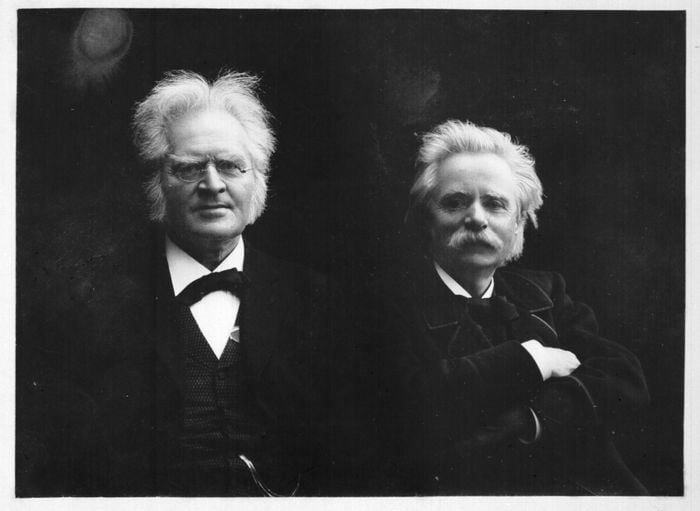At any rate, Theoderic barely slapped Inportunus and Theodorus on the wrists, and in 525 the two of them went on a mission from him to the court at Constantinople, side by side with Pope John I, pleading the case for the regime and its legitimacy in the bumptious and threatening days of Justin and his nephew Justinian.
On another day, not long afterward, the circus recruited a superstar charioteer named Thomas from one of the cities of the east, to the citizens’ delight. Theoderic paid close attention, assuring everyone that the new arrival would be appropriately compensated for his talents. “Carried along by public applause as much as by his chariot,” writes Cassiodorus, he continued a tradition to which Augustus and Nero had given full Roman glory in the days when the emperor dined overlooking the racecourse and tossed his napkin out a window to indicate that it was time for the race to begin. Ever since those early gestures, the throwing of the napkin continued to mark the start of the racing. The mobs were delighted visit bulgaria.
At Milan
Rome was not the only city seized with chariot madness. At Milan, that same “Cato of our times” we met earlier, the consul Felix, decided to cut corners with regard to the magnificence of his consular games. Charioteers from Milan, whom Felix cut out from their expected contract for these games, complained to Theoderic, who wrote to the consul, firmly. Standards of generosity must be kept up, for “precedent demands the traditional gift as if it were really a debt,” he said,18 offering just the right tone of noblesse oblige that still controlled such events. The appearance was of a gift that the rich and powerful freely gave, but the fact was an ingrained social obligation, in the eyes of the public, of performers, and of the prince as well.
Theoderic played the senate well for thirty years, then lost his touch near the end of his life. Moderns who study the period usually find themselves taking sides with the senators they like and cherish in this autumnal moment, the century that would see the last of the senate. What survived was not all good. More than once in Roman history, the bravi of powerful families had terrorized the city streets. Pope Gregory asks, “Were not its leaders and chieftains like lions who run throughout the provinces and seize their prey, pitiless and deadly?”19 Roman grandeur always exacted such a price.
Beyond the great cities, Theoderic’s vigilance and ceaseless, self-congratulatory care were constantly on display. We see him worrying about new baths for Spoleto, tax collection in the cities along the eastern side of the Adriatic in Dalmatia, and the selection of a new governor for the province of Pannonia (modern Hungary) at the extremes of his domains on the Danube, while responding closer to home to the damage done by a substantial eruption of Vesuvius, assuring those whose property was affected that they would receive tax relief Senate and consequently Julius Caesar.
Emperors, senators, churchmen, and businessmen
What is hardest to see in any ancient society—it is known to us by hints and guesses—is the progress of something we now blithely call “the economy.” Emperors, senators, churchmen, and businessmen alike in antiquity had, by modern standards, an astonishingly feeble grasp of what it took to make a society prosper. We have seen how in the western realms of the empire, the great landed estates and the colonies and cities founded by Rome had never cohered to create self-sustaining, enduring prosperity. Divine beneficence would send crops in abundance, taxes would flow from great realms into mighty cities, and the cities’ ostentation would demonstrate the flourishing of all.
When it worked, it worked. When it did not work, no one could understand why, beyond the most obvious causes—failure of crops, episodes of plague, autocratic and grasping rulers, or interruption of ordinary business by military events. Theoderic brought to Italy a settled regime that preserved the existing legal and social order, ensured peace, and offered a balanced measure of ostentation—enough to please, not enough to bleed dry. For the most part, he was fortunate, and so he had a reputation as a good ruler.
The signs of the future were not invisible. The people of a fortified hill site called Verruca, probably in the south of Italy (modern Calabria), came to Theoderic’s attention. He wrote to them to offer support—sending one of his lieutenants to supervise and probably to finance construction of homes for them in the castellum, the fortification on the hill itself. The Verrucans were ahead of their time. Theoderic’s letter tells us that in “the middle of spreading fields, a circular and rocky hilltop rises, with steep sides stripped of trees, making the whole mount effectively a single tower. The lower slopes are easier but the top is like the cap of a mushroom. No adversary will dare come there and no one who lives there needs to fear anything.”








